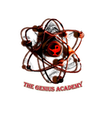Curriculum Foundations
|
Challenging the Genius Curriculum was created on the foundation of four pillars: Maat, Afrocentricity, Nguzo Saba and the Dogon Theory of Learning. Maat is the ethical foundation. Afrocentricity grounds us. The Nguzo Saba is our assessment. Finally, the Dogon theory of learning guides the techniques and strategies of the educational process.
Maat is the ethical philosophy of ancient KMT (Egypt): truth, justice, propriety, order, balance, harmony and reciprocity. It is the moral code that drives all actions to be good, do good and bring good into the world. Using KMT as the resource for ethics and the underlying foundation for management and decorum, the principles of MAAT are included across the curriculum in all disciplines. The Afrocentric Paradigm created by Dr. Molefi Asante places Africa and Africans at the center of the curriculum and as agents. Students are able to see themselves as agents, actors, and participants rather than as marginals on the periphery of a European curriculum. The Language Arts beginning reading program is taught from African cultural traditions, by telling stories with a moral lesson. The stories introduce long and short vowels, ethical principles and concepts of respecting self, others and the environment. The Mathematics curriculum introduces African history along with contributions from our culture and African people. Social Studies is KMT. Afrocentricity grounds us in our culture and history and centers our children to ask who, what, where, when and how African people exist in the world. A first grade student succinctly summarized a field trip to an art museum from an Afrocentric perspective by asking, “Where are the Black people?” The third pillar is the Nguzo Saba created by Dr. Maulana Karenga. The seven principles of Kwanzaa are: Umoja (unity), Kujichagulia (self-determination), Ujima (collective work and responsibility), Ujamaa (cooperative economics), Nia (purpose), Kuumba (creativity) and Imani (faith). Kwanzaa was created to introduce and reinforce seven basic values of African culture which contribute to building and reinforcing family, community and culture among African American people as well as Africans throughout the world African community. These seven principles are the assessment of everything from teacher and student evaluations to the school, its organizations and everything that we do in our daily lives. The day begins and ends with the Nguzo Saba. Finally, the Dogon Theory of Learning is the baseline for the techniques and strategies of the Challenging the Genius Curriculum. The Dogon, people of Mali, have four stages in their theory of learning. It begins with GIRI SO or the front word. This first stage is concrete operations, repetition and drill, hands-on, rote memory brain development. The second stage is BENNE SO or the side word. It is comparative learning where the child begins to make associations, discriminations and recognition of patterns and relationships. The third stage is BOLO SO or the back word for analytical and abstract thinking and transference of knowledge to applications. The last stage is SODAYI or the clear word when understanding and knowledge become intrinsic. Application of knowledge is used without thinking. The Language Arts curriculum has many experiential activities that lead to a recognition of patterns to facilitate the reading process. Children begin reading much earlier and comprehend at higher levels with an increased vocabulary. Reciprocal operations in math also increase skills at higher levels. By the third grade students begin an introduction to Calculus. |
Teaching/Learning stages are:
Concrete experiences and rote memory (Consciousness/GIRI-SO)
Recognition of patterns (Actualization/BENNE-SO)
Transference of knowledge to reality (Transformation/BOLO-SO)
Use of knowledge for life (Empowerment/SODAYI)
The Challenging the Genius Curriculum is an exceptional program.
We hope you enjoy using it.
Watch your genius excel!
Concrete experiences and rote memory (Consciousness/GIRI-SO)
Recognition of patterns (Actualization/BENNE-SO)
Transference of knowledge to reality (Transformation/BOLO-SO)
Use of knowledge for life (Empowerment/SODAYI)
The Challenging the Genius Curriculum is an exceptional program.
We hope you enjoy using it.
Watch your genius excel!

